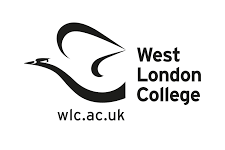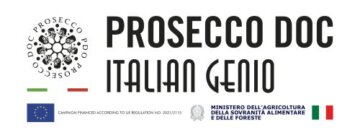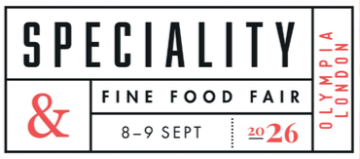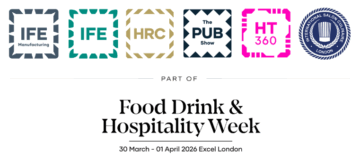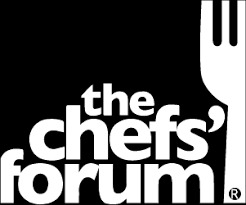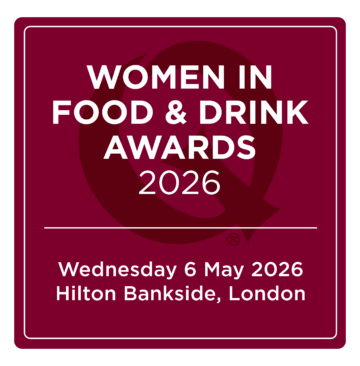07/04/2025
Meet the Trailblazers behind Plates – The UK’s first Plant-based Michelin Star restaurant
This year Plates became the first UK plant-based restaurant to be awarded a Michelin star, after siblings Kirk and Keeley Haworth opened in July 2024 in Old Street, East London. Innovative chef Kirk Haworth honed his craft at top establishments like The French Laundry, Sat Bains and was Champion of Champions on Great British Menu. His sister Keeley is the creative driving force, co-founder and MD, who has long combined her innate food and drink passions and beliefs on sustainability with her career in creative for global brands. Together they’ve built up Plates into an award-winning restaurant with a sustainable, dynamic, innovation business model at its core. Women In the Food Industry Ambassador & Writer, Antonia Lloyd, interviews Keeley on how they’ve built their success, their summer launch of Plates farm and retreat in the south west of France.
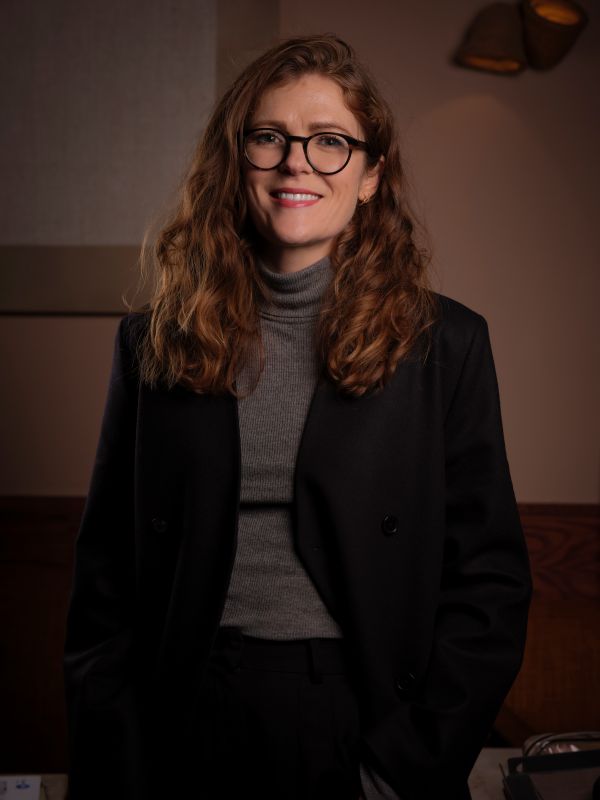
KEELEY HAWORTH, Plates, Co-founder & Managing director,
Tell me how you and Kirk developed the concept for Plates and what your goals were?
Kirk’s health background [being diagnosed with Lyme disease in 2016] really drove the way that the model of the business developed. About the five year point he’d got so frustrated with the mainstream help, he was thinking I’ve got to find some alternative ways, and his greatest kind of superpower was obviously cooking. So, it was like, if I can cook for guests and put so much passion and care into feeding other people, I’m actually going to flip that on its head and put all of that energy, care and passion into feeding myself. We began on this journey of exploring – cooking, keeping a food diary and then removing certain things and he slowly led himself to a plant-based diet without really realising it. In the darkest of days, it was food that kept him optimistic about life and something to fight for at the end of that was always us opening a restaurant and having this dream together where we would create something new that hadn’t been done before.
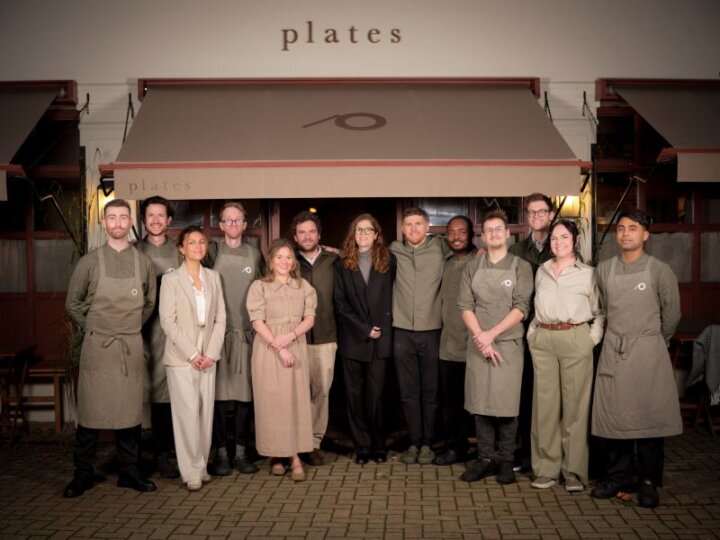
I built this model around his ability – he was building his strength again, but wasn’t fit enough yet to do a full time chef role, so we created a food development studio and restaurant. We created this idea of a food development studio and restaurant. I’d previously built an agency with my husband as well as spending five years building a creative studio so I was fully immersed in that world. [In 2017] we started doing just Saturdays open to the public, upstairs at Adam (Byatt’s) Trinity restaurant. We started super small, completely self- funded and we just built this up from nothing. We then moved into a permanent studio where we worked with some great clients for 3 or 4 years before Covid hit. Then with Covid we started to pivot and think about something more permanent.
After Covid, we did a year- long residency in Dalston to make sure that we were really ready because we grew up in the restaurant industry and know how tough it is. Fast forward 2024 and we were ready to open and we’d found this space just off Old street. The restaurant is really kind of intimate. It’s got lots of light coming through, with nature being the underpinning of everything. And now we’re kind of coming full circle. Next month, we’re reopening the food and drink development studio for extra special events and created a food and drink development space that will host private events and special kind of moments for the brand.
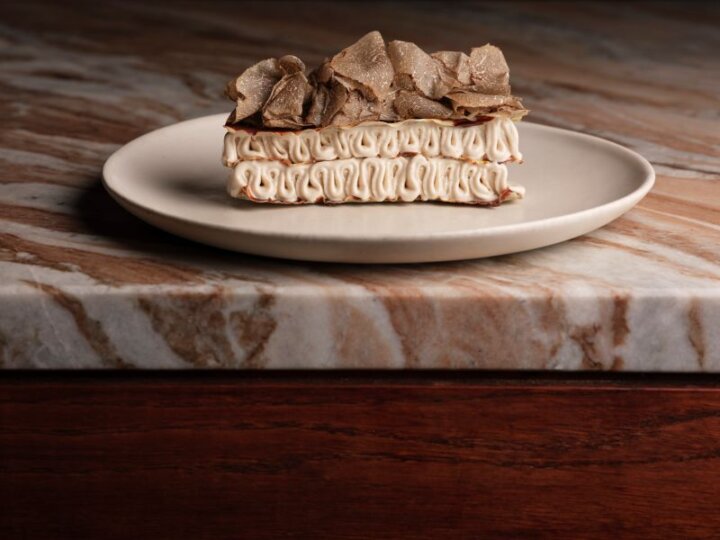
How does sustainability underpin what you do at the restaurant?
The underpinning of everything is sustainability, and that’s holistically connected throughout the company. So, whether that’s for people or for planet, there’s a care there. The caring of the environment, of the team, where the ingredients come from or about how all of these things connect to the longevity of the business. That’s what we’re really focused on. In the interiors – the bar is made from felled London trees, it’s about being creative. The design is carefully selected using local crafts people and all of the materials have been vegetable dyed so they’re not using any nasties.
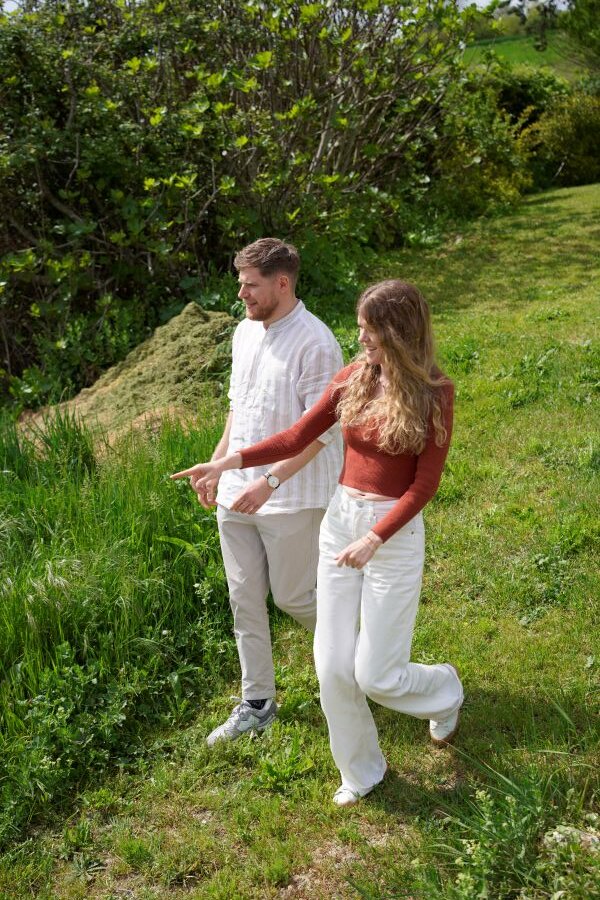
We seek out the best, organic vegetables, of course, and we’re really connected to the soil and where the ingredients come from. Kirk’s really thorough with all of that. And obviously with Alex the wine list, we’re supporting small suppliers that may not be certified organic, but we know their practices. It’s not that Plates is a sustainable restaurant and that’s our headline, for us, we’re trying to create progressive ideas in this restaurant and connecting them in a way that works for the restaurant and the team, to keep pushing the food, the drink, and keep the innovation flowing.
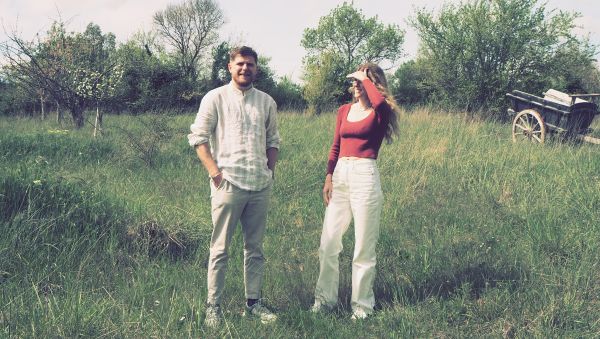
What do you think has been key to your success at Plates?
I think always being willing to fail is key to our success. We’ve tried a lot of things that haven’t worked out but we haven’t ever given up on it. I think that’s the big thing – that resilience. And we really believe in the product and I think whether that’s championing this new way with fruits and vegetables, all the team feel like this is a different journey that we’re on, and always staying passionate and hungry around the progression.
You were raised in a family of chefs and your father is award-winning and won a Michelin star at Northcote. What does it mean to you and your family to have become the first British plant-based restaurant with a Michelin star?
I mean for us personally and all the team it’s just such a great accolade. It really does allow us to progress and changes the game because you’ve got that attention on a wider global scale. And I think people like me and Alex who are really excited and ambitious around building out things like the drinks programme, you’ve got such a different leverage when you’ve got a star and you can connect with people globally. I think it’s incredible for the UK to have a plant-based Michelin star restaurant, to really showcase the British gastronomy.
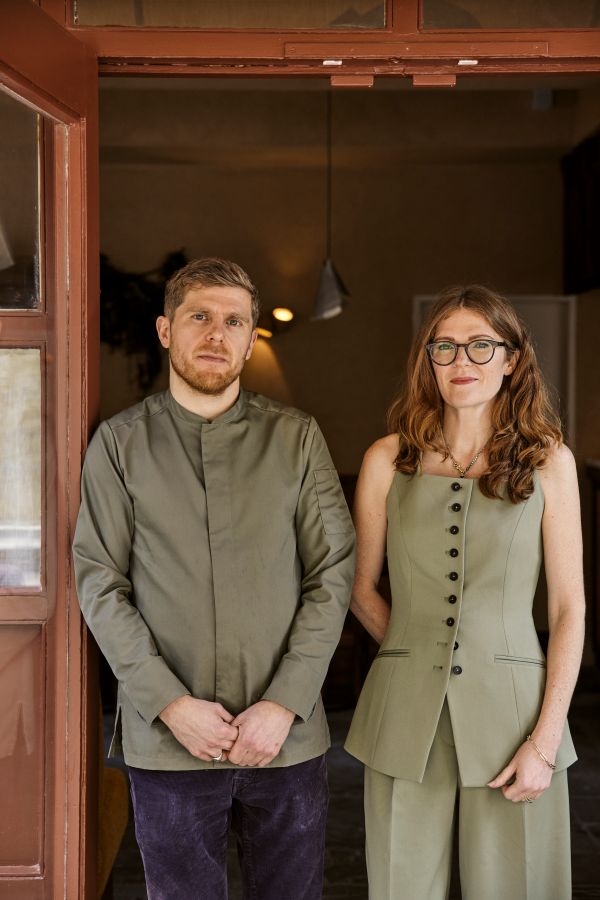
Describe your role at Plates as co-founder and MD?
I manage the business and the operations and then a lot of the threads that tie things together. Kirk’s very, very focused on food and the management of the restaurant. I’m more across all the business, all departments making sure everything’s connected and operationally working, and then I do drive the creative as well. I’m more connected with the drinks. I work with the drinks team and then again like driving that connection back to the kitchen and making sure we’re all holistically working together. I guess me and Kirk’s visions are so aligned, I can deliver the Plates vision and the ethos and bring that connection back in.
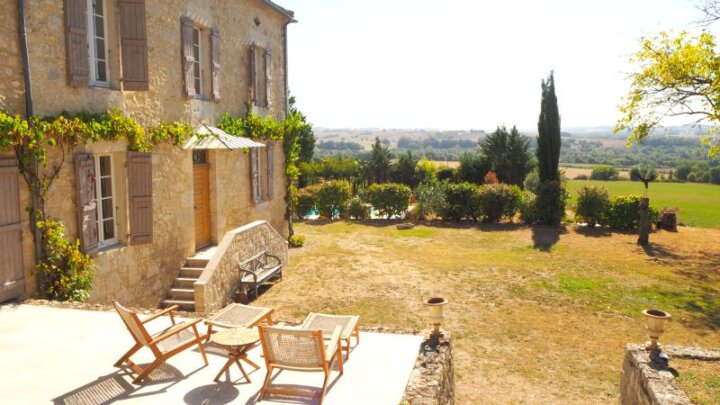
Tell me about your launch of Plates Farm and Retreats this summer in south west France and your goals for the first season?
We’re super excited. We’re in the final phases at the moment. [It’s open] from early May and this is a big step forward for the brand and another place our customers can experience it. And then the produce is just incredible and the wines are obviously beautiful. It just gives us a space to play and it’s immersed in nature. Also, for the team [about 16 people in London], we’ve got this event space now where we can build. Kirk, Alex and I are looking at what that food and drink festival that we can do out here is going to be – probably for next year. Also, it’s on the cards for the team to come out for a three-day trip here when we close in August. We get to give back to the team and have that time together. I think creatively we’re going to have a rotation cycle – anybody in the team gets opportunities to come out and run an event out here for a couple of weeks. I think it’s going to be great for staff retention and opportunities of growth. You know we don’t know what the future is going to bring, but what we do know is we’ve got be agile keep the business alive these days.
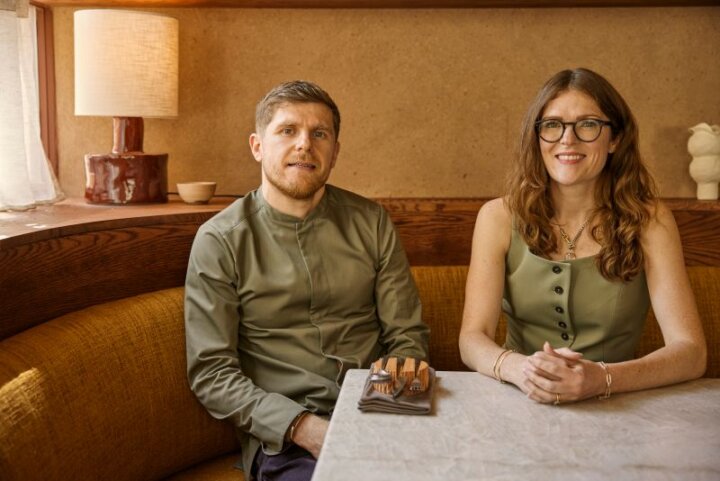
As a trailblazing woman and mother in the food industry, what advice would you give anyone starting out or coming up the ranks?
It’s definitely finding places that fit with your ambition and having that right attitude to show somebody that you want to work and learn. I think it’s very overwhelming when you’re young when you’re coming into an industry, but conveying that passion or that hunger – I think businesses and employers, really respond well to that. Anne Sophie-Pic, one of the few female three star chefs, did an interview recently, saying it took until she was 40 to feel confident. I think it’s more around showing passion and a desire to learn, bringing your skills to the forefront. Also, don’t let things go easily if things don’t work out the first time. I’ve done all the hiring, and we don’t have any egos in our business. I think leading by example. We want to open our doors and start to share more ways of working that could inspire other people or the people that are building businesses or young female stars coming through the ranks.
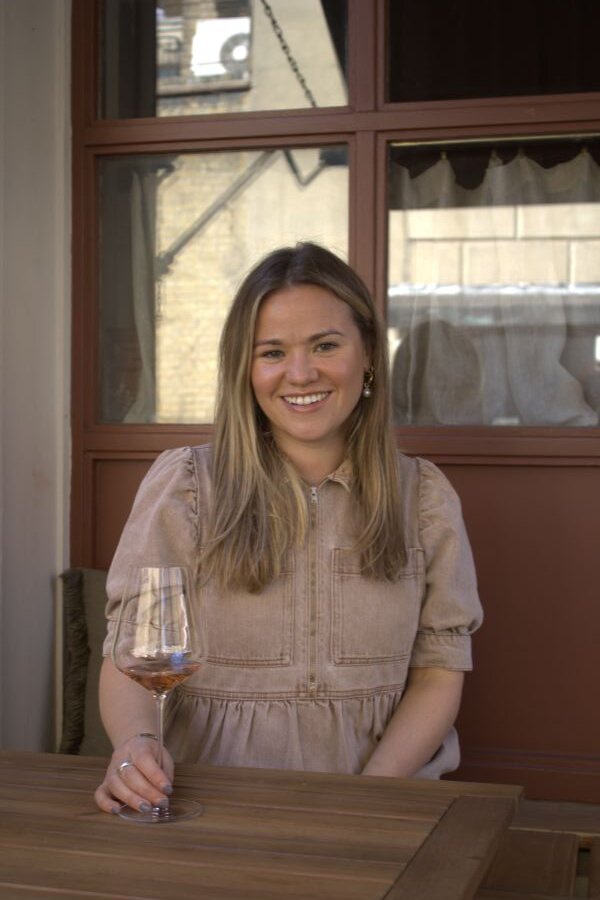
Watch this space as Antonia also interviewed Plates, Head of Wine, Alex Price, about her creative approach to the wine list, categorised according to climate and terroir and supporting the pioneers behind regenerative farming.
You may also be interested in our interviews with the following chefs:
Ruth Hansom on making the Roux Scholarship finals in 2022 and Olivia Burt on making the Roux Scholarship finals in 2022. Plus read our ambassador Antonia Lloyd’s interview with April Lily Partridge on winning the Roux Scholarship in 2023 and her interview with Emily Roux on winning her first Michelin Star.




